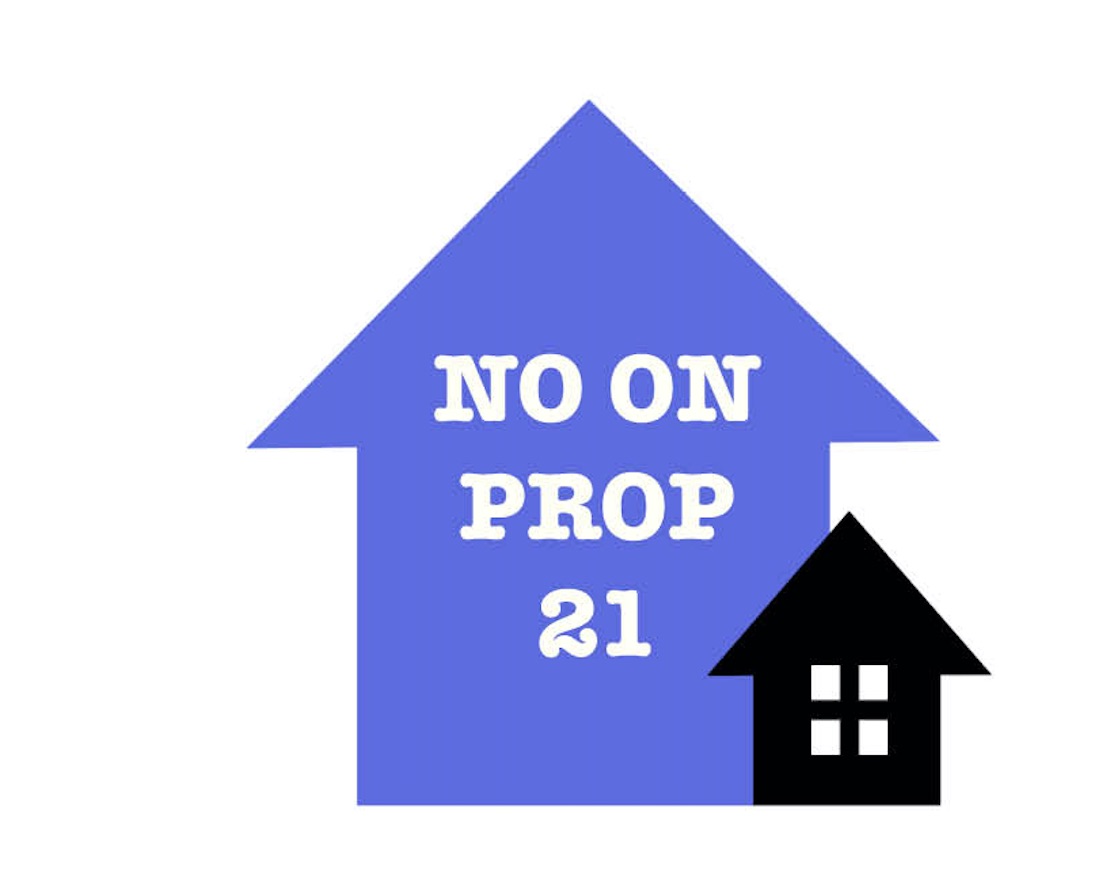Why Put Up Roadblocks to More Rentals?
No on Prop. 21

Rent control efforts have served to inhibit the supply of available rental housing in every instance, resulting in more hardship for the populace it claims to serve.
Initiatives, such as this one, are usually decided based on advertising and advocacy, and often end up as legally challengeable. The legislative process is onerous, messy, lengthy, and hopefully, contemplative. This is as it should be. Repeated attempts at the same initiatives, like Prop. 21, are searching for opportunistic timing.
Greater self-determination in local land use issues is generally desirable. Sacramento has, however, had a pattern of late of confounding local control on many fronts, with housing issues at the head of the line. Governor Newsom signed AB 1482 to create a statewide rent control program, with a sunset date of 10 years from now. When it comes to further controls, local agencies will have to use this new law as a baseline, leaving only more restrictive regulations in play. Politics tends to compete with reality, and those of us outside the castle walls can suffer as a result.
Get the top stories in your inbox by signing up for our daily newsletter, Indy Today.
Supply is the greatest response to demand when it comes to pricing a commodity. Disincentives to developers and those who either have or would place their properties in the rental market is a strange method of trying to increase supply. In addition, an annual limit of upward rent adjustment messages landlords that they had better go to the ceiling every year, whether that is their pattern or not. Their hand is forced, the relationship between landlord and their tenant now has an unwelcome guest, and the result can be the insertion of contention where it didn’t exist previously. In the meantime, politicians can claim the moral high ground as advocates of “the little guy.”
The tenant/landlord relationship is not a social issue, it is a private business deal. The privately owned “housing stock” of a community is not public domain. Santa Barbara currently enjoys one of the highest percentages of “affordable” housing, much due to the efforts of our fabulous Housing Authority, which utilizes creative financing and subsidies. Hopefully, private real estate investment means risk eventually rewarded and the opportunity for a renter to obtain housing within the realm of the market. If the reward/risk continuum is artificially altered, the participants will be fewer. Mobility and flexibility for renters is diminished.
Protective regulations are currently in force and are numerous. A written contract serves to make clear responsibilities and expectations, and services such as Santa Barbara’s Rental Housing Mediation Task Force can help solve disputes without the expense of legal proceedings. Singling out private landlords as the cause of California’s housing woes is unfair and wrongheaded.
Rent control has a poor track record at best. The advocate’s ballot statement that it will alleviate homelessness is pure demagoguery. Housing production and the maintenance of a robust rental market will be severely diminished by this type of legislation. If you favor retaining existing rental housing stock, hope to increase supply of rental units, and ensure capital upgrades and maintenance of clean, viable rental housing, then vote “no” on Prop. 21.
Every day, the staff of the Santa Barbara Independent works hard to sort out truth from rumor and keep you informed of what’s happening across the entire Santa Barbara community. Now there’s a way to directly enable these efforts. Support the Independent by making a direct contribution or with a subscription to Indy+.



